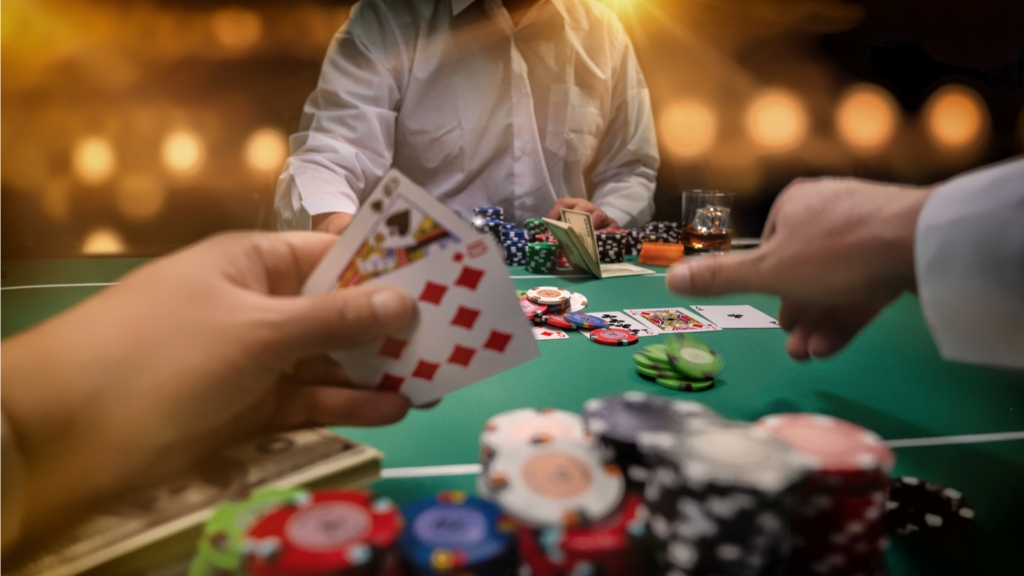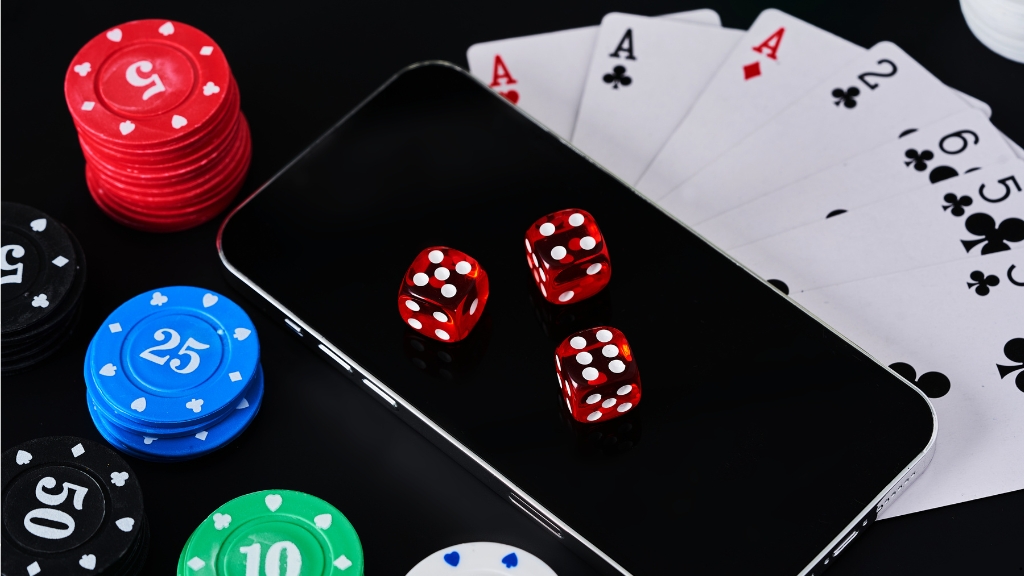Gambling has a way of drawing people in, promising excitement and the thrill of potential rewards. But beneath the surface lies a complex psychological pull that keeps many coming back for more, even when the odds aren’t in their favor. I’ve often wondered why it’s so hard to walk away, even when logic tells us to stop.
The truth is, gambling taps into powerful emotions and brain mechanisms designed to keep us hooked. From the rush of anticipation to the allure of “just one more try,” it’s easy to see how these urges can take hold. But recognizing the psychology behind these impulses is the first step toward breaking free.
Understanding why we feel compelled to gamble isn’t just fascinating—it’s empowering. Once we uncover the mental triggers at play, we can take control and resist the pull. Let’s explore what drives these urges and how to overcome them.
Understanding Gambling Urges
Gambling urges stem from psychological and physiological factors that manipulate decision-making and reward perception. Identifying these drivers reveals why resisting gambling can feel challenging.
What Drives the Desire to Gamble?
Several factors contribute to the desire to gamble, including thrill-seeking, financial aspirations, and escape from stress. Thrill-seeking often ties to the unpredictable nature of gambling outcomes, which creates excitement. Financial aspirations arise when individuals believe gambling can quickly solve monetary issues despite low probabilities of success. Stress relief becomes a factor when gambling serves as a temporary distraction from personal or professional challenges.
The Role of Dopamine and Reward Systems
Dopamine, a neurotransmitter in the brain’s reward pathway, actively reinforces gambling behavior. Each win or near miss triggers dopamine release, creating a feeling of pleasure even when the overall outcome isn’t beneficial. Over time, this stimulation can condition the brain to crave the repeated excitement, making it harder to resist gambling. The intermittent reinforcement of unpredictable wins strengthens this cycle, cementing the behavior further.
Psychological Triggers of Gambling Urges
Gambling urges often stem from a combination of internal emotions, external stressors, and social influences. Understanding these triggers helps in identifying vulnerable moments and resisting the compulsion to gamble.
Emotional States and Gambling
Emotions play a significant role in gambling behavior. Excitement, driven by the anticipation of a win, often motivates individuals to place bets. Conversely, sadness or boredom might lead someone to gamble as a form of distraction or escapism. For example, a person experiencing loss or loneliness may turn to gambling to fill an emotional void, associating it with temporary comfort or entertainment.
The Impact of Stress and Anxiety
Stress and anxiety frequently exacerbate gambling urges. High-pressure situations, such as financial problems or workplace stress, often drive individuals to seek relief through gambling. The immediate distraction of gambling can provide a temporary escape from these concerns. However, this behavior creates a cycle where losses amplify stress, encouraging further gambling in the hope of recouping losses.
Social and Environmental Influences
Social and environmental factors strongly shape gambling habits. Peer pressure, especially in social settings like casinos or online gaming platforms, can encourage participation. Advertising and promotions also reinforce gambling urges by presenting it as a glamorous or accessible activity. For instance, loyalty rewards or free spins appeal to regular gamblers by promising additional chances to win, fostering repeated engagement.
The Risks of Gambling Addiction
Gambling addiction carries significant consequences that extend beyond financial losses. It impacts mental and physical health, relationships, and overall quality of life.
Signs of a Developing Addiction
Several warning signs indicate a growing gambling addiction. Increased preoccupation with gambling, such as constantly thinking about past bets or planning the next gambling session, is common. Spending more money than planned or chasing losses indicates a loss of control. Neglecting responsibilities, like work or family duties, to prioritize gambling is another red flag. Experiencing mood swings, irritability, or withdrawal when unable to gamble suggests dependency. Borrowing money or concealing gambling activities further signals a problem. Identifying these behaviors early is essential for intervention.
Long-term Mental and Physical Effects
Chronic gambling addiction leads to significant mental and physical health issues. Depression, anxiety, and heightened stress levels often emerge due to financial strain and repeated failures. Sleep disorders are common, caused by stress or late-night gambling. Physical effects, including headaches and digestive problems, stem from stress-related body tension. Over time, the addiction’s emotional toll strains relationships and increases feelings of isolation. Persistent gambling can also increase susceptibility to substance abuse as individuals seek ways to manage stress or guilt. These effects highlight the need for addressing addiction promptly.
Strategies to Resist Gambling Urges
Understanding the psychology behind gambling urges lays the groundwork for effectively resisting them. Combining practical techniques with lifestyle adjustments can empower individuals to break the cycle of gambling.
Cognitive Behavioral Techniques
Addressing thought patterns helps reduce gambling urges. I focus on identifying cognitive distortions, like believing in “winning streaks” or the ability to control random outcomes. Reframing these thoughts into logical perspectives—such as recognizing the randomness of gambling—limits their power. Keeping a journal to track triggers and responses further clarifies harmful patterns. I also practice controlled breathing or mindfulness exercises when urges arise, which calms impulsive decision-making.
Building Healthy Habits and Alternatives
Replacing gambling with productive activities creates positive change. I prioritize developing hobbies like exercise, reading, or volunteering to occupy my time and divert attention. Engaging in social activities, such as joining groups or spending time with friends, reduces feelings of isolation that often fuel gambling behavior. Setting daily routines, including scheduled relaxation time, ensures stability and minimizes opportunities for gambling.
Seeking Professional Support
Reaching out to professionals offers valuable tools for managing gambling urges. I consult licensed therapists trained in addressing addictive behaviors when self-help strategies aren’t sufficient. Group support networks like Gamblers Anonymous provide a sense of accountability and community. For severe urges, certain medications prescribed by healthcare providers may help regulate the brain’s reward system and reduce compulsive behaviors.
Supporting Others Struggling With Gambling
Helping someone with gambling issues requires understanding, empathy, and proactive support. Recognizing signs of distress and offering thoughtful assistance can make a significant difference.
Recognizing When Someone Needs Help
Spotting when someone is struggling with gambling can prevent their situation from worsening. Signs include preoccupation with gambling or secrecy about their activities. Behaviors like frequent borrowing, unexplained financial problems, or neglecting responsibilities often indicate trouble. Emotional changes, such as mood swings, irritability, or withdrawal from social interactions, also suggest gambling-related issues.
Pay attention to patterns rather than isolated incidents. For instance, consistent excuses for missing commitments or sudden gaps in finances are stronger indicators than a one-time event.
Offering Compassionate Assistance
Approaching someone struggling with gambling requires empathy, not judgment. Start by expressing concern using non-confrontational language, such as “I’ve noticed you seem stressed lately. How can I support you?” Avoid accusations or negative remarks, as they can cause defensiveness.
Encourage open dialogue by allowing them to share their experiences at their own pace. Share resources, like local support groups or helplines, if they’re receptive. Offer to accompany them to appointments or research professional services to make the process less overwhelming.
Promote accountability gently, suggesting practical steps like limiting access to funds or implementing self-exclusion measures with gambling establishments. Remind them that recovery takes time and setbacks are part of the process, reinforcing your willingness to provide ongoing support.
Conclusion
Gambling urges are deeply rooted in psychological and emotional triggers that can be challenging to overcome, but they’re not impossible to resist. By understanding the mechanisms behind these impulses, we can take proactive steps to break free from harmful patterns and regain control.
Building healthier habits, seeking professional support, and fostering open communication are powerful tools for addressing gambling-related struggles. Recovery takes time and effort, but with the right strategies and support, it’s entirely achievable. Remember, every step toward resisting gambling urges is a step toward a healthier, more balanced life.



